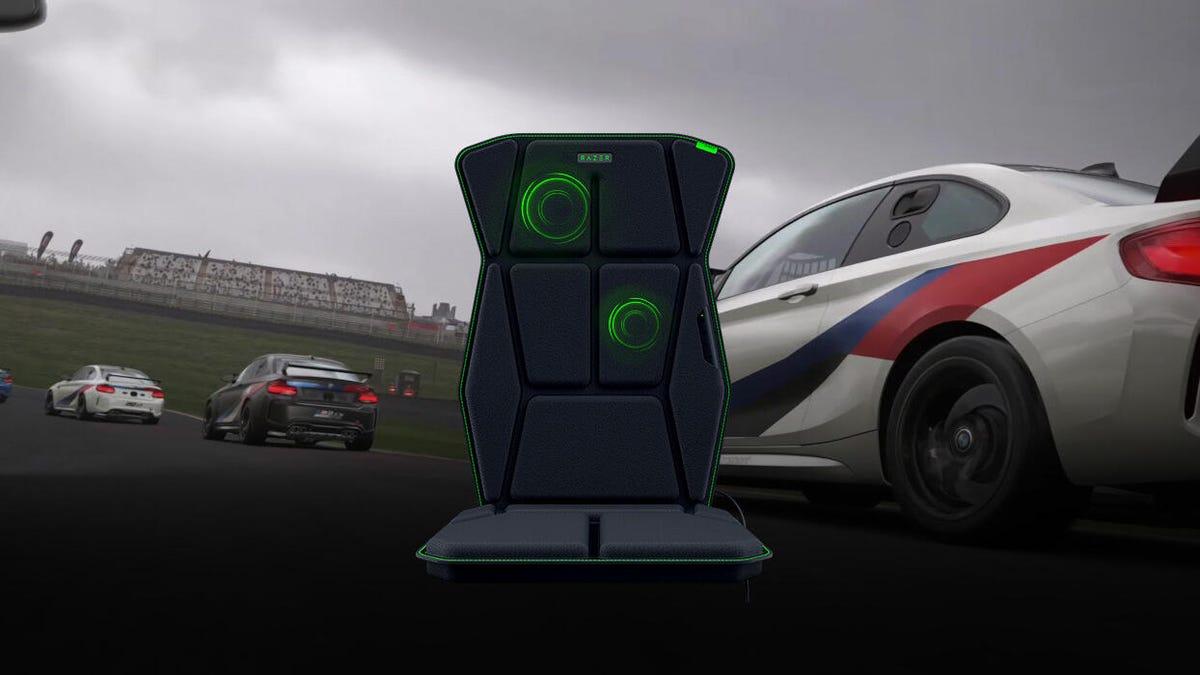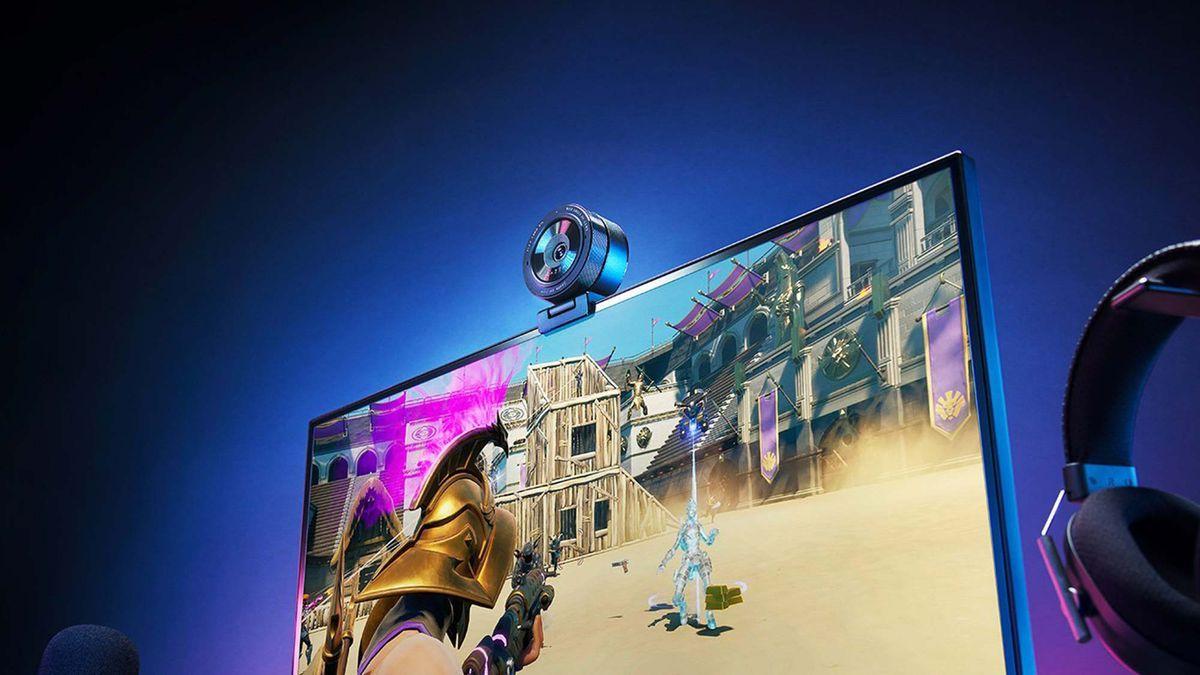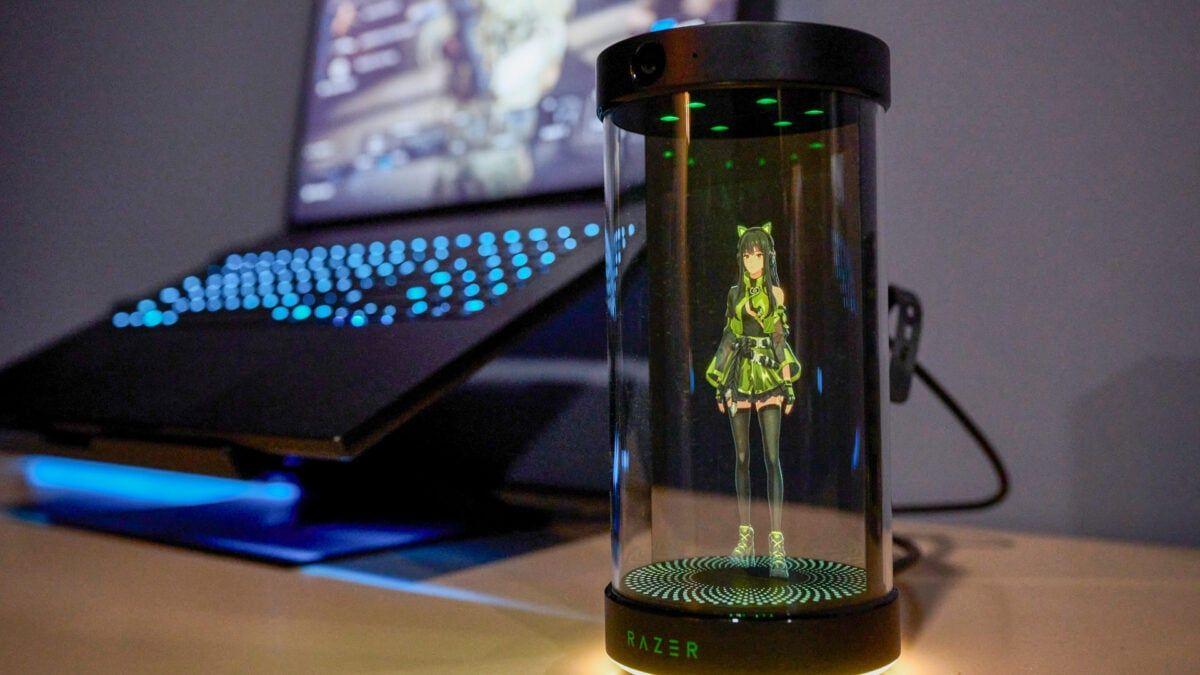Razer Partners with World to Combat AI Bots in Gaming Using Blockchain-Based Identity Verification
4 Sources
4 Sources
[1]
Razer wants to fight gaming's AI problem with more AI
Razer has partnered with Sam Altman's World to help distinguish real players from bots in multiplayer experiences. Bots in multiplayer games are nothing new; in fact, many games benefit from giving players AI-controlled bots to play against when there aren't enough human players to fill a server. However, bots can also be too skilled and nearly impossible to defeat, or worse: they could be farming bots that do nothing but spam the game and ruin player experiences. Razer ID verified by World ID is designed to designate users as humans and provide assurance that you're playing against another person, rather than a bot. It's built on the World Network, an existing blockchain system that uses iris scans to verify identity. Recommended Videos However, the technology has a way to go before it's widely available. Its first use will be in a game called Tokyo Beast, a blockchain-focused title that will require users to sign in through a Razer ID. In theory, it will prevent human players from being paired against bot players. In a survey from Echelon Insights and requested by World, 59% of gamers reported frequent encounters with bot-controlled players in games. Of those surveyed, 71% said that bots ruin the competitive nature of games, and 18% stopped playing a game because of the number of bots. Please enable Javascript to view this content Razer and World want to ensure the online multiplayer experience remains human-focused, where gamers can test their skills against one another rather than against a bot with artificial skills. Wei-Pin Choo, Chief Corporate Officer of Razer, said "Growing a verified community is key to fair play. To foster fair competition, developers must be able to build trusted, human-only game experiences that keep AI bots out. By teaming up with World, we're ensuring that real players are the heart of every experience, keeping gaming fair, immersive, and designed for humans."
[2]
Razer Aims to Eliminate AI Bots From Games via World's Identity Tech - Decrypt
Gaming brand Razer is teaming up with World (formerly Worldcoin) to help remove AI bots from online games, allowing human gamers to become the central focus of a gaming industry with increasing AI connections. The gaming firm is launching "Razer ID verified by World ID," a new single-sign on feature that uses World's blockchain-based proof-of-humanity technology to verify real human gamers. "Growing a verified community is key to fair play. To foster fair competition, developers must be able to build trusted, human-only game experiences that keep AI bots out," said Razer Chief Corporate Officer Wei-Pin Choo, in a statement. "By teaming up with World, we're ensuring that real players are the heart of every experience, keeping gaming fair, immersive, and designed for humans." The pair's collaboration comes at a time when AI-infused bots are wreaking havoc on the gaming landscape, with a new Echelon Insights survey indicating that nearly 3 in 4 gamers agree that bots are an annoyance that make games less fun. The new human-verified Razer ID will allow developers to introduce new anti-bot measures to games, and will be first utilized in the upcoming Web3 game, Tokyo Beast, which is being built on the Ethereum gaming platform Immutable. The ID will also be usable across the Razer product suite, including its game payment services and rewards system. "World ID enables gamers to distinguish between authentic human interactions and AI-generated content, all while safeguarding their privacy," said Tiago Sada, Chief Product Officer at Tools for Humanity, a contributor to World and its Ethereum layer-2 network. Users of Razer products will be able to use their Razer ID to access World's mobile app, from which they can begin the human verification process to receive their newly verified ID. To do so, users can visit one of World's physical Orb locations or provide proof-of-humanity via an NFC-enabled government ID. Worldcoin (WLD), co-founded by OpenAI's Sam Altman, saw a major surge to $2.40 in January after President Trump teased a major AI investment centered around Altman's company. The token has since fallen sharply, dropping 28% in the last 30 days to $0.88, nearly 93% off its all-time high of $11.74 from March 2024.
[3]
Razer is collaborating on a gaming CAPTCHA to combat AI-powered bots, and of course the first game to use it is the worst Web3 nonsense I've ever seen
One of the most annoying aspects of using the modern Internet is having to convince every other website that I am, in fact, a human, typically by clicking on little squares of traffic lights and bicycles. The irritation has been compounded since I learned that tools like CAPTCHA don't really do much to deter online bots at all, but are in fact "a tracking cookie farm for profit masquerading as a security service." So it was with a raised eyebrow that I learned Razer is collaborating with blockchain-based verification system World to create what is essentially a CAPTCHA for games. Confusingly named "Razer ID verified by World ID", it aims to let players confirm their nature as a sentient, organic lifeform in games that support it. "With AI technologies on the rise, can you be certain your opponent is human?" asks Razer on its website, seemingly neglecting the fact that bots in multiplayer games have been an issue long before the advent of LLMs and advanced machine learning algorithms. "By verifying your Razer ID with Proof of Human, you gain a secure and private way to confirm your human identity, all through the convenience of single sign-on". Let's not dwell on the deeply dystopian nature of the phrase "Proof of Human" and instead dig into how all this supposedly works. Razer ID is linked to World ID, part of the "World Network" cryptocurrency initiative, founded in 2019 with the involvement of OpenAI's Sam Altman and formerly known as Worldcoin. The goal of World is allegedly to create a verifiably human online network, World ID is described on the World site as "a secure, permissionless identity protocol" that it claims functions as "a global digital passport for the age of AI". Creating a World ID can apparently be done in two ways, either submitting ID documents to the World app (such as your passport), or, and I swear I am not joking here, visiting an "Orb". Designed to verify that you are a "unique human" the Orb takes a photo of your face and eyes, using iris biometrics to confirm your identity. There are apparently 815 Orbs around the world, though the nearest one to me seems to be in Germany, which doesn't seem enormously convenient. Once you've verified your humanness via app or orb, Razer receives "zero knowledge proof" (i.e. without any attached personal data) that you are human. This can then be used to verify your identity in any game that supports it. "Using proof of human in Razer ID's SSO integration, game developers can leverage on a new framework to conveniently implement features such as anti-botting, anti-bullying, and user authentication," claims Razer's website. Which brings us to the big question, what games use it? Well, the example Razer cites is a game called "Tokyo Beast", which producer Naoki Motohashi describes in a video about Razer ID as "one of the world's largest new blockchain games". Ah. I visited the Tokyo Beast website to try to find out what kind of game it is, but almost everything on the site seems to be about how much money you can win by playing, without actually explaining what the game is about. I did find a link to the game's white paper, however, and from what I can glean it seems to be about buying and selling NFTs of absolutely godawful fox ladies with multiple tails, with some heavy gacha mechanics thrown in. If Tokyo Beast isn't a scam, it does an extremely good job of resembling one. There's no question that bots are a problem in multiplayer gaming. Indeed, they can threaten to ruin a game if left unchecked, as famously happened with Team Fortress 2. And I can see how AI tech could exacerbate the problem. But I don't see any world in which gaming companies sign up en masse to a blockchain based verification system, especially one that uses Tokyo Beast as an example of how it can work.
[4]
Razer wants to eliminate AI bots in games and see 'human-only' gameplay modes
TL;DR: A study reveals 59% of gamers encounter bots, reducing enjoyment for 71%. Razer's solution, 'Razer ID verified by World ID,' aims to verify human players in games like TOKYO BEAST, enhancing security and authenticity. This technology, focusing on privacy, could help developers combat bots and ensure fair play. Bots in competitive or cooperative multiplayer games have been a problem for years, with a new study from Echelon Insights stating that 59% of gamers have encountered third-party bots in games. And with that, 71% agree that bots make it less fun to play certain games, with 77% agreeing that it's essential to verify that you are a human before jumping into the action. And these bots are getting increasingly sophisticated in the age of AI gaming. 'Razer ID verified by World ID' is one solution to this problem, and it's set to be part of the upcoming multiplayer game TOKYO BEAST. The game is set in Tokyo in the year 2124, a time when humans and "advanced autonomous androids" coexist. It's a competitive title that includes collectible unique NFTs alongside in-game purchases via Razer. 'Razer ID verified by World ID' is powered by secure, single sign-on (SSO) technology designed to verify "real human gamers" to create a more authentic and immersive gaming experience. World ID, a company co-founded by Sam Altman and Alex Blania, is all about confirming someone's unique online human identity with a focus on privacy. It can tell that someone is human without knowing who they are. "World ID enables gamers to distinguish between authentic human interactions and AI-generated content, all while safeguarding their privacy," said Tiago Sada, Chief Product Officer at Tools for Humanity, a key contributor to World. "This partnership marks a major step toward building a more secure, trustworthy gaming ecosystem, starting with Razer's deep familiarity with the needs of the gamers and expansive global community." Pairing this with your Razer ID (something owners of Razer peripherals can access) will allow game developers to integrate the tool into multiplayer games to ensure real players, not bots, are playing. "This solution can help developers introduce advanced anti-bot measures, strengthen in-game harassment prevention through human verification, and streamline player authentication for seamless logins," Razer writes. It's an interesting solution and tool for a common issue; however, the company will need to engage with developers to provide an easy way to integrate it into more games. With so many digital accounts, platforms, and ecosystems out there with anti-cheat measures, it will probably be an uphill battle to get 'Razer ID verified by World ID' technology into something like PUBG or Valorant. However, if World ID technology proves to be more efficient at detecting real humans than other existing tools and solutions, there's a place for it in more titles. "As AI continues to reshape the gaming world, we want to empower gamers and game developers with the tools they need to navigate this transformation safely and confidently," said Wei-Pin Choo, Chief Corporate Officer of Razer. "Growing a verified community is key to fair play. To foster fair competition, developers must be able to build trusted, human-only game experiences that keep AI bots out. By teaming up with World, we're ensuring that real players are the heart of every experience, keeping gaming fair, immersive, and designed for humans."
Share
Share
Copy Link
Razer teams up with World to introduce 'Razer ID verified by World ID', a blockchain-based identity verification system aimed at distinguishing human players from AI bots in multiplayer games, addressing growing concerns about bot interference in gaming experiences.

Razer's Initiative to Combat AI Bots in Gaming
Razer, the prominent gaming hardware company, has announced a partnership with World (formerly Worldcoin) to address the growing issue of AI bots in multiplayer gaming experiences. The collaboration aims to introduce a new identity verification system called 'Razer ID verified by World ID', designed to distinguish human players from AI-controlled bots
1
.The Bot Problem in Gaming
A recent survey by Echelon Insights revealed that 59% of gamers frequently encounter bot-controlled players in games. Of those surveyed, 71% reported that bots ruin the competitive nature of games, with 18% admitting to quitting games due to excessive bot presence
1
. This highlights the significant impact of bots on player experiences and game enjoyment.How 'Razer ID verified by World ID' Works
The new system utilizes World's blockchain-based proof-of-humanity technology to verify real human gamers. Users can obtain their verified ID through two methods:
- Submitting government-issued ID documents via the World app
- Visiting a physical "Orb" location for iris biometric scanning
3
Once verified, Razer receives a "zero knowledge proof" of the user's humanity, which can be used for authentication in supported games without sharing personal data
2
.Implementation and Future Prospects
The first game to implement this technology will be Tokyo Beast, a blockchain-focused title requiring users to sign in through a Razer ID
1
. While this initial implementation has faced some criticism due to its association with NFTs and blockchain gaming3
, Razer aims to expand the technology's use across its product suite, including game payment services and rewards systems2
.Related Stories
Potential Benefits and Challenges
Proponents argue that this technology could help developers introduce advanced anti-bot measures, strengthen in-game harassment prevention, and streamline player authentication
4
. However, the success of 'Razer ID verified by World ID' will depend on widespread adoption by game developers and acceptance by the gaming community.Industry Implications
This initiative reflects the gaming industry's ongoing struggle with AI-powered bots and the search for effective countermeasures. As AI continues to reshape the gaming landscape, solutions like Razer's may become increasingly relevant in maintaining fair and enjoyable gaming experiences
4
.References
Summarized by
Navi
[1]
Related Stories
Recent Highlights
1
ByteDance's Seedance 2.0 AI video generator triggers copyright infringement battle with Hollywood
Policy and Regulation

2
Demis Hassabis predicts AGI in 5-8 years, sees new golden era transforming medicine and science
Technology

3
Nvidia and Meta forge massive chip deal as computing power demands reshape AI infrastructure
Technology








